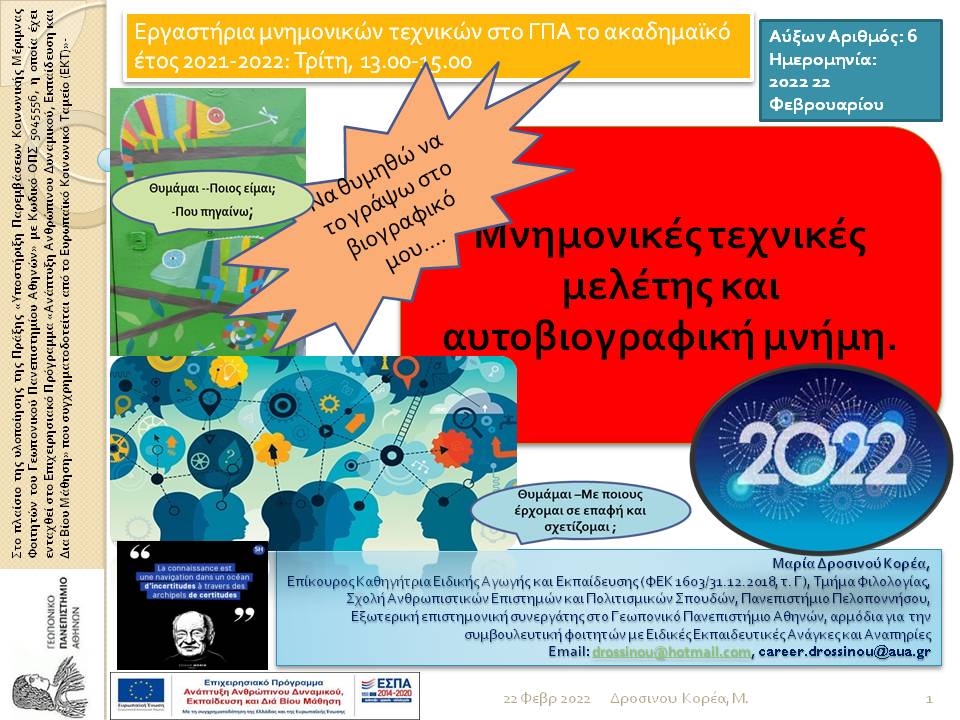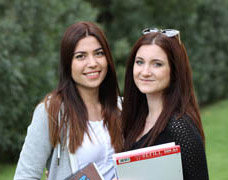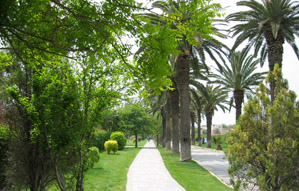Mnemonic study techniques and autobiographical memory

Dear students,
Happy and blessed year 2022!
Welcome to the Memory Techniques workshop of February 2022!
• If you have difficulty studying,
• If you owe enough lessons,
• If you have difficulty remembering what you are reading,
• If you have difficulty "taking" notes
• If you are worried about what is wrong with your exams,
• Come to the small group Interactive Laboratory of Mnemonic Techniques
who organizes it: the Career Office
when: on Tuesday 22 February 2022
time: 13: 00 -15: 00
CAUTION!!
The seminar can be attended by students of the Agricultural University of Athens..
Summary
The purpose of the interactive micro-group laboratory is to present mnemonic study techniques regarding autobiographical memory.
At a theoretical level we discuss issues related to the autobiographical memory we have for our lives and which is a special category of episodic memory. The mnemonic study techniques derive from the central control system of working memory regarding the processes of retrieving (1) information from long-term memory, participating in the coding (2) of new information, tuning (3) the phonological circuit and the visual-spatial notebook. Autobiographical memory, as a mnemonic technique, distributes the available cognitive resources, controls, and shifts attention. Also, it selects the appropriate strategies for performing the mental work that the student is engaged in, and incorporates information from different sources.
On a practical level we will work with exercises of awareness of the individual way of studying with emphasis on the central control system of both verbal and auditory information of the lessons from the phonological circuit and the visual and spatial information in the amphitheater or the laboratory from the visual-spatial notebook. Emphasis will be placed on the audio information received by students through distance learning in the period of social distancing due to the pandemic.
Bibliographic reference: Rousos, P., L. (2011). Autobiographical memory. In Cognitive Psychology, the basic cognitive processes (pp. 231-234). Athens: Place, In Greek.
Topic speaker in the laboratory: Drossinou-Korea Maria, Phd in Psychology, Assistant Professor of Special Education and Training, external collaborator responsible for the specialized counseling support for students with disabilities and the disabled at the Career Office of the Agricultural University of Athens.
If you want to participate please sent message to career@aua.gr, referring your fullname, the department and year you study and your student registration number


